- Home
-
Nepal
-
Trekking
- Dhampus trek
- Jomsom Muktinath Trek
- Annapurna Base Camp Trekking (Sanctuary)
- Annapurna Circuit(Round) Trekking
- Mardi Himal Trekking
- Ghorepani Cleaning Trek
- Annapurna Panorama Trek
- Annapurna Culture Trek
- Everest Base Camp Trek
- Everest Panorama Trek
- Khopra Trek
- Mohare Danda Trek
- Ganesh Himal Trekking
- Ganesh Himal Medical Trek
- Langtang Valley Trek
- Langtang Gosainkund Trek
- Ganja La Pass Trekking
- Ruby Valley Pangsang Pass Trek
- Langtang Gosainkund Helambu Trek
- Tamang Heritage Trek
- Panch Pokhari Trek
- Upper Mustang Trek
- Everest High Pass Trek
- Gokyo Valley Trek
- Gokyo Chola Pass Trek
- Salleri to Everest Base Camp Trekking
- Pikey Peak Trek
- Tsum Valley Trek
- Manaslu Circuit Trek
- Lower Dolpo Trek
- Makalu Base Camp Trek
- Ghorepani Poon Hill Trek
- Helambu Trek
- Jyamrung Trek
- Chepang Indigenous Trek
- Dhampus Sarangkot Trek
- Ghandruk Trek
- Surya Chaur Chisapani Trekking
- Yoga Soft Trek
- Indigenous Trek
- Nepal Social Treks
- Yoga Shamanism Trek
- Chisapani Nagarkot Dhulikhel Trek
- Kathmandu Valley Trek
- Khaptad National Park
- Jiri to EBC Trek
- Nomad Community Trek
- Annapurna Luxury Trek
- Tilman Pass Trek
- Helambu – Ama Yangri Trek
- Peak Climbing
- Chulu West Peak Climbing
- Chulu Far East Climbing
- Island peak via Gokyo-Chola-EBC
- Island Peak Direct Route
- Lobuche Peak Climbing
- Mera and Island Peak via Apulapcha Pass and EBC
- Mera Peak Direct Route
- Mera Peak Climbing
- Naya Kangi Peak Climbing
- Paldor Peak Climbing
- Pisang Peak Climbing
- Tent Peak Climbing
- Yala Peak Climbing
- Pachermo Peak via Tsho Rolpa Lake
- Lobuche Peak via Gokyo Chola Pass EBC
- Rafting and Kayaking
- Wildlife Safari
- Adventurous Trip
- Mountain Biking
- Hiking
- Tours
- Day Tours
- Expedition
- Ganesh Himal-I Expedition
- Ganesh Himal -IV Expedition
- Makalu Expedition
- Annapurna Expedition
- Ganesh Himal -V Expedition
- Dhaulagiri Expedition
- Ama Dablam Expedition
- Cho Oyu Expedition
- Everest Expedition from Tibet Side
- Everest Expedition
- Kanchenjunga Expedition
- Lhotse Expedition
- Manaslu Expedition
- Pumori Expedition
- Annapurna I Climbing
- Ganesh Himal Climbing
- Himlung Himal Climbing
- Tibet
- Tours
-
Bhutan
-
Tours
- Trekking & Hiking
- India
-
Tours
- Trekking and Hiking
- Multi Country
-
Nepal Tibet Bhutan Trekking
- Nepal Bhutan Tour
- Nepal Bhutan Trek
Everest High Pass Trek: Best Trek for Adventure Seekers
- Home
- Everest High Pass Trek: Best Trek for Adventure Seekers
;Everest High Pass Trek: Best Trek for Adventure Seekers.
Are you an adventure seeker looking for an exhilarating trekking experience? Look no further than the Everest High Pass trek! You will see giant Himalayan peaks to distant valley views, this trek offers a once-in-a-lifetime chance to explore the glory of the Everest region. In this article, we will guide you through the Everest High Pass Trek's highlights, preparations, and experiences.
Introduction:
The Everest High Pass Trek is a challenging and adventurous trek that takes you through three high mountain passes in the Everest region of Nepal. It offers stunning views of peaks covered with snow, glaciers, and remote Sherpa villages. This trek is perfect for adventure seekers who are physically fit and seek an extraordinary experience amidst nature's wonders.
Overview of the Everest High Pass Trek:
The Everest High Pass Trek covers a distance of approximately 160 kilometers and typically takes around 19-21 days to complete. It involves crossing three high passes: Kongma La Pass (5,535m), Cho La Pass (5,420m), and Renjo La Pass (5,360m). You will also visit famous landmarks like Everest Base Camp, Kala Patthar, Gokyo Ri, and the pristine Gokyo Lakes. Each pass presents its own set of challenges and rewards, offering stunning panoramic views of the surrounding Himalayan peaks.
Preparation and Training:
Before embarking on the Everest High Pass Trek, it is essential to prepare both physically and mentally. Regular cardiovascular exercises, strength training, and endurance-building activities like hiking and stair climbing are recommended. And a few months before the trek, you should engage in longer hikes in hilly areas to acclimatize to the precision of trekking.
Acclimatization and Altitude Sickness:
Acclimatization is crucial during the Everest High Pass Trek to prevent altitude sickness. Adequate rest days and gradual ascent are incorporated into the itinerary to allow your body to adjust to the increasing altitude. You should always stay hydrated, eat well, and follow the guidance of experienced guides to minimize the risk of altitude illnesses.
Trekking Routes and Itinerary:
The Everest High Pass Trek starts with a scenic flight to Lukla, followed by a trek through the legendary Everest Base Camp trail. From there, you'll venture into less-frequented trails, crossing the high passes and reaching the beautiful Gokyo Valley. The trek concludes in Lukla, from where you'll fly back to Kathmandu. The itinerary for this trek can be customized based on your preferences and fitness levels.
Highlights of the Trek:
The Everest High Pass Trek offers a plethora of highlights that will leave you awe-inspired. Some of the notable attractions include:
* Magnificent views of Mount Everest, Lhotse, Nuptse, Makalu, and other Himalayan giants.
* Sunrise from Kala Patthar, providing a panoramic view of Everest's summit.
* Visiting the Everest Base Camp, where mountaineers prepare for their ascent.
* Exploring the turquoise Gokyo Lakes, set amidst the snow-capped peaks.
* Crossing high passes that offer unparalleled views of the surrounding landscapes.
* Immersing yourself in the Sherpa culture and hospitality of the local villages.
Flora and Fauna of the Everest Region:
Plants and animals here are adapted to the extreme altitude and harsh conditions of the high mountains. Wildlife enthusiasts may spot Himalayan tahrs, musk deer, snow leopards, and a plethora of bird species, adding to the trek's natural charm. The unique ecosystems and remote location make it an important conservation area, which attracts nature enthusiasts and researchers from around the world.
Teahouse Accommodation and Local Cuisine:
Throughout the Everest High Pass Trek, you'll stay in teahouses, which are basic lodges offering a cozy place to rest and replenish your energy. These teahouses provide meals ranging from local Nepali dishes to international cuisines, ensuring you taste the local culture while enjoying a warm and comfortable stay amidst the mountains.
Safety and Responsible Trekking Practices:
Safety is of utmost importance during the Everest High Pass Trek. Hiring a knowledgeable and experienced guide is recommended to navigate the challenging trails and ensure your well-being. Responsible trekking practices, such as respecting the local culture and environment, carrying out your waste, and following designated trails, are essential to preserving the beauty of the region for future generations.
Best Time to Trek:
The best time to undertake the Everest High Pass Trek is during the pre-monsoon (spring) and post-monsoon (autumn) seasons. The months of March to May and September to November offer stable weather conditions, clear skies, and moderate temperatures. These seasons provide excellent visibility of the majestic mountains and a pleasant trekking experience.
Packing Essentials:
Packing appropriately is crucial for a successful and comfortable trek. Some essential items to pack include sturdy trekking boots, warm and layered clothing, a good quality sleeping bag, a waterproof backpack, sunglasses, sunscreen, a hat, and personal first aid and medication supplies. It's advisable to pack light while ensuring you have all the necessary gear and essentials.
Permits and Regulations:
To trek in the Everest region, you will need permits issued by the Nepali government. The required permits include the Sagarmatha National Park Permit and the Khumbu Rural Municipality Permit. Don’t worry, we can assist you in obtaining these permits and ensuring compliance with local regulations.
Trekking Gear and Equipment:
Investing in good-quality trekking gear and equipment is essential for your safety and comfort during the Everest High Pass Trek. Gears like trekking poles, a sturdy backpack, a sleeping bag, comfortable clothing, waterproof outerwear, hiking boots, and a headlamp are very important. It's recommended to consult with your trekking agency for a comprehensive gear checklist.
Physical Fitness and Challenges:
The Everest High Pass Trek is a physically demanding adventure that requires a good level of fitness. Cardio and strength training will prepare your body for the challenges of trekking at high altitudes. It is essential to understand your body, pace yourself, and follow the guidance of your trekking guide.
Conclusion:
Embarking on the Everest High Pass Trek is an unforgettable experience that combines adventure, natural beauty, and cultural exploration. You will witness some of the world's highest peaks up close while immersing yourself in the warmth and hospitality of the local Sherpa communities. With proper preparation, responsible trekking practices, and a spirit of adventure, you can conquer the high passes of the Everest region and create memories that will last a lifetime.
Frequently Asked Questions:
1. Is prior trekking experience necessary for the Everest High Pass Trek?
* While prior trekking experience is beneficial, it is not mandatory. However, a good level of physical fitness and mental preparedness is crucial for the trek.
2. What is the difficulty level of the Everest High Pass Trek?
* The Everest High Pass Trek is considered a challenging trek. It involves long walking days, steep ascents and descents, and high altitudes. Proper acclimatization and physical preparation are essential.
3. Are there any age restrictions for the trek?
* There is no strict age restriction for the Everest High Pass Trek. But individuals should be in good health and have a reasonable level of fitness to undertake the trek.
4. Is travel insurance necessary for the trek?
* Yes, travel insurance that covers high-altitude trekking is highly recommended. It should include emergency medical evacuation, trip cancellation, and coverage for trekking at high altitudes.
5. Can I trek the Everest High Pass Trek independently?
* While it is possible to trek independently, it is advisable to hire a licensed guide for safety and convenience. Experienced guides have extensive knowledge of the region and can assist in case of any emergencies.
Everest High Pass Trek will be an adventure of a lifetime, offering an incredible opportunity to witness the majestic Himalayas and immerse yourself in the unique culture of the Everest region. By respecting the environment, and embracing the challenges along the way, you can enter a remarkable journey that will leave you with cherished memories with a sense of accomplishment. So, lace up your boots, pack your bags, and prepare to embark on the Everest High Pass Trek!
Categories
Recent Posts
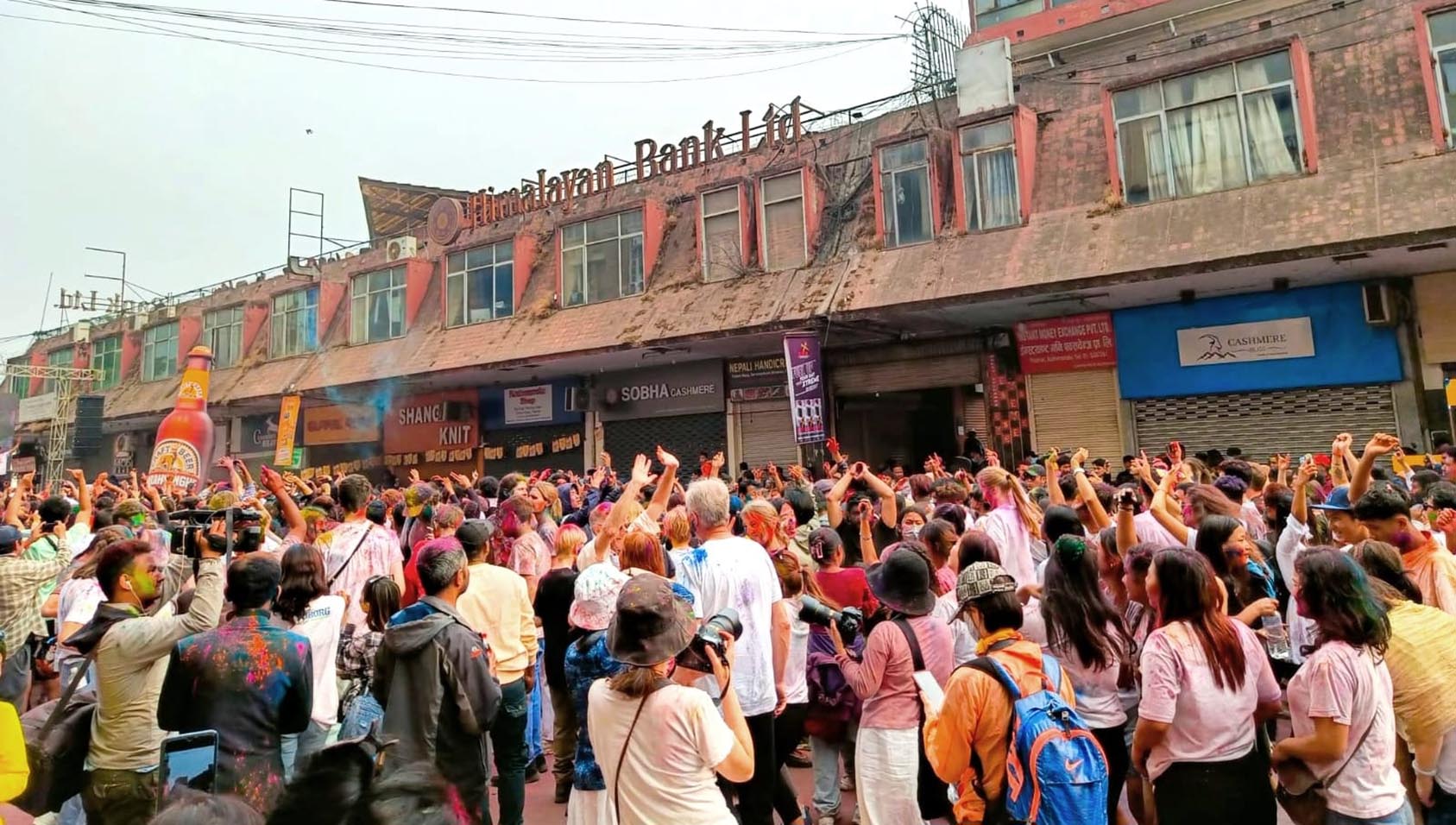
Celebrating Holi: The Vibrant Festival of Colors
24-03-2024
E-Visa in Nepal
11-02-2024
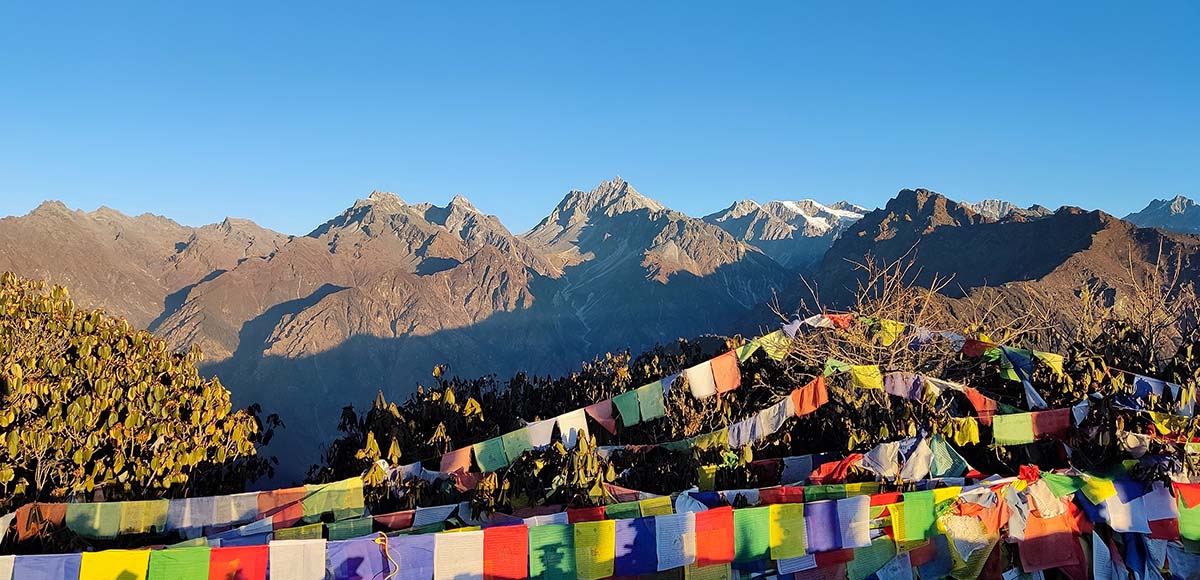
Helambu – Ama Yangri Trek!
12-01-2024
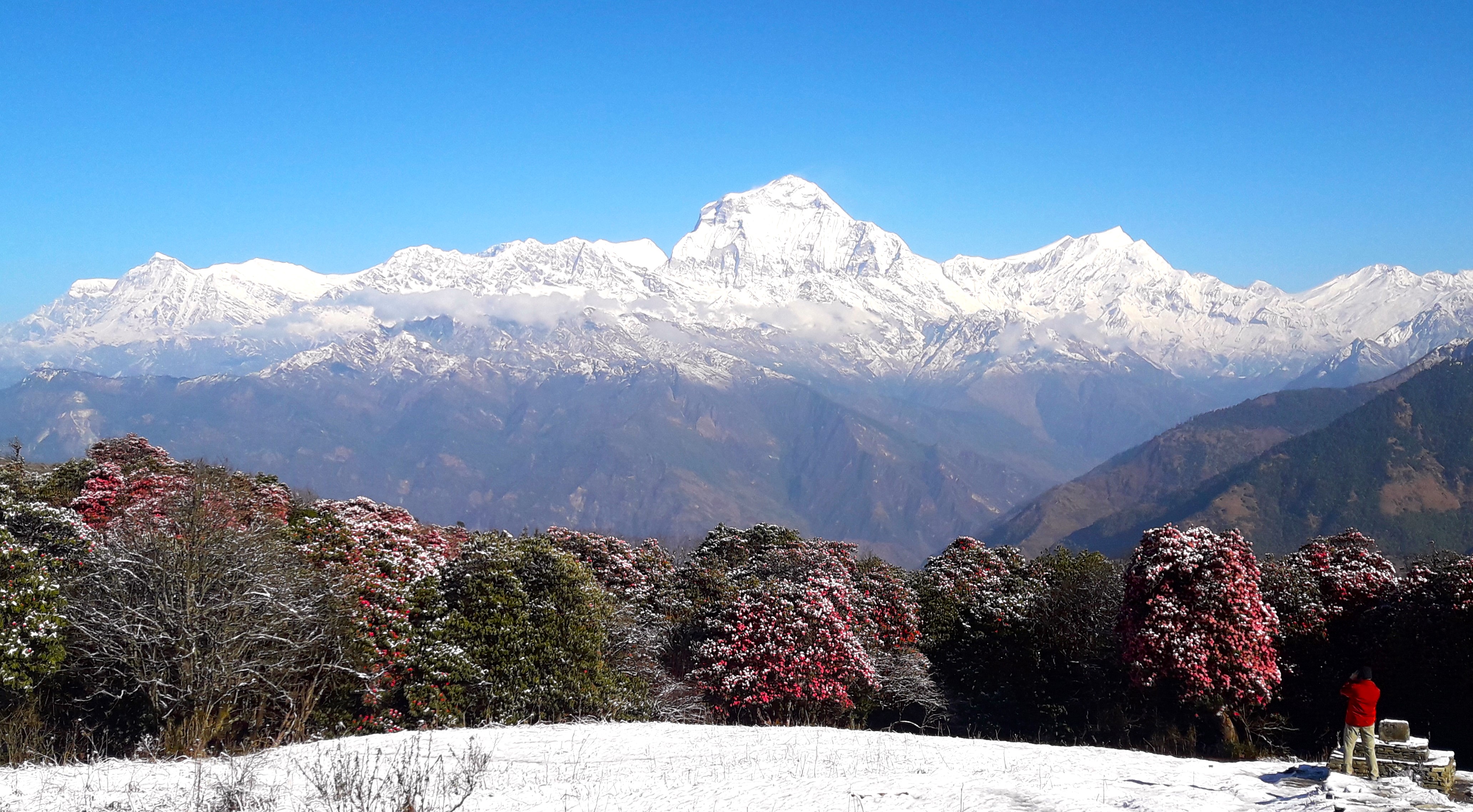
Ghorepani Poonhill: A Perfect Trek for Winter Season
08-12-2023
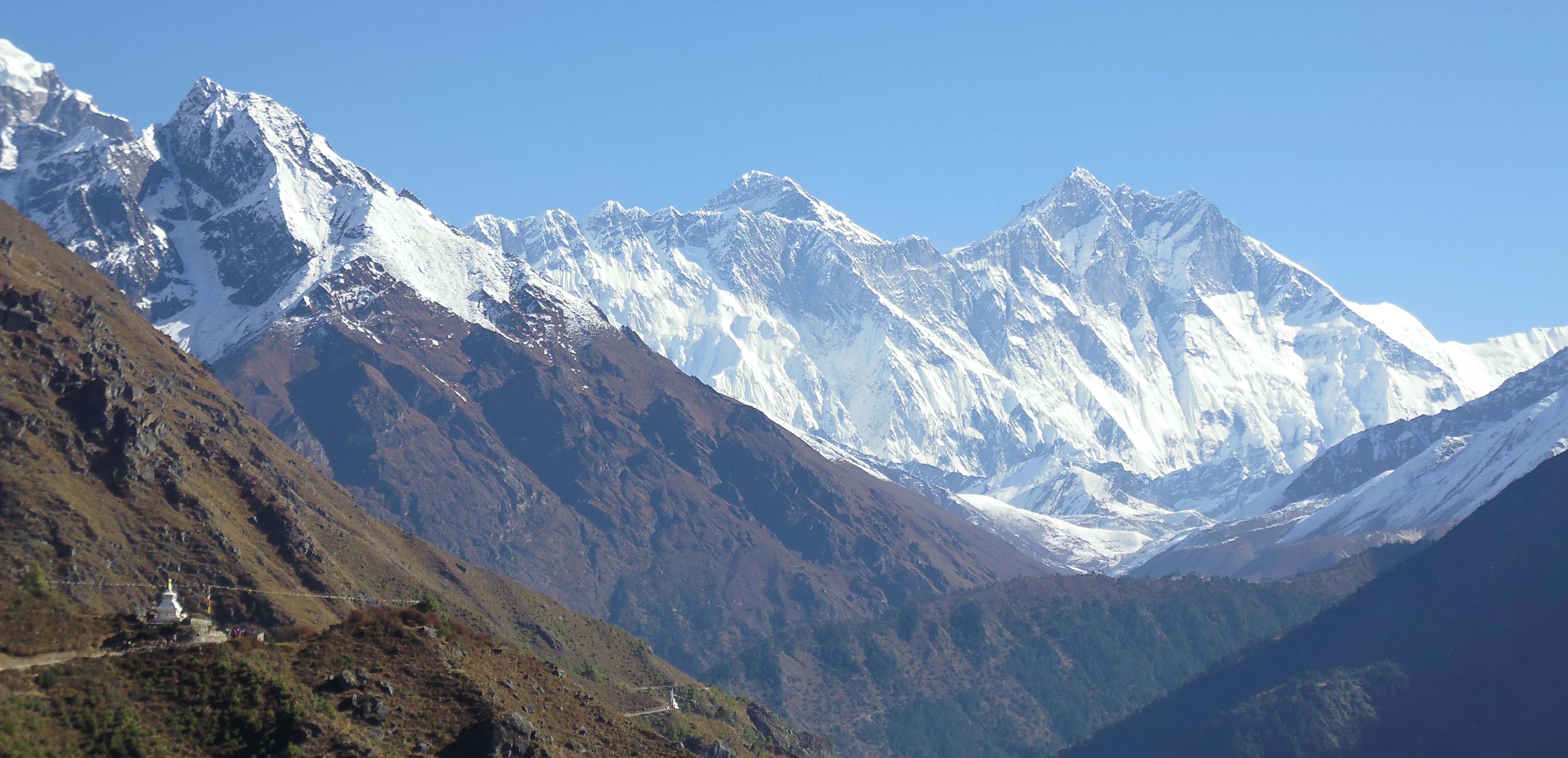
Winter Season Trekking in Nepal
06-11-2023

Dashain Festival in Nepal: A Celebration of Tradition and Unity
23-10-2023
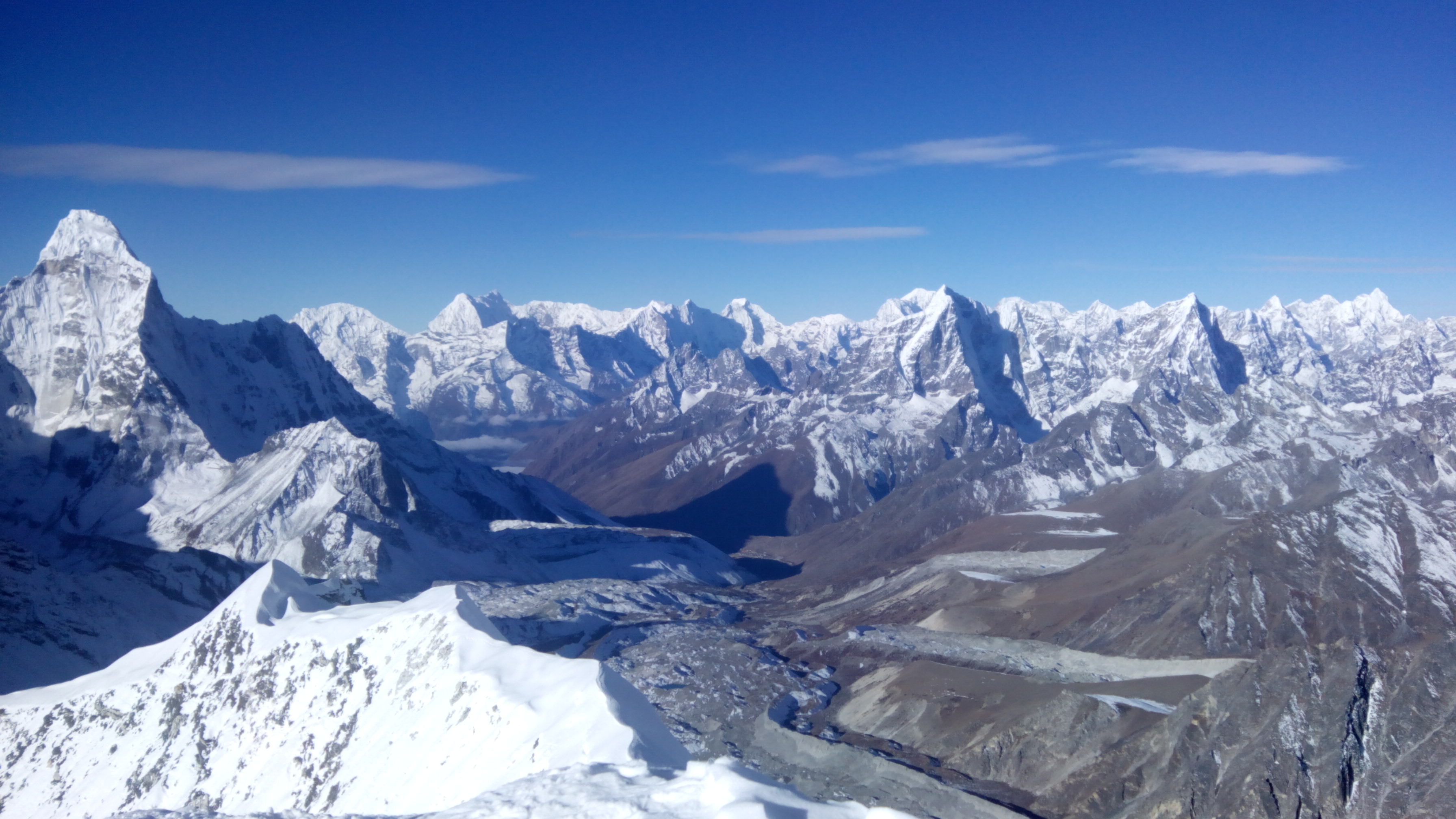
Island Peak : The journey full of adventures to the Himalayas of Nepal.
21-09-2023
Are you looking forward to extend your travel business in nepal?
Partner With UsTOP
- Nepal Bhutan Tour
-
Tours
-
Trekking

